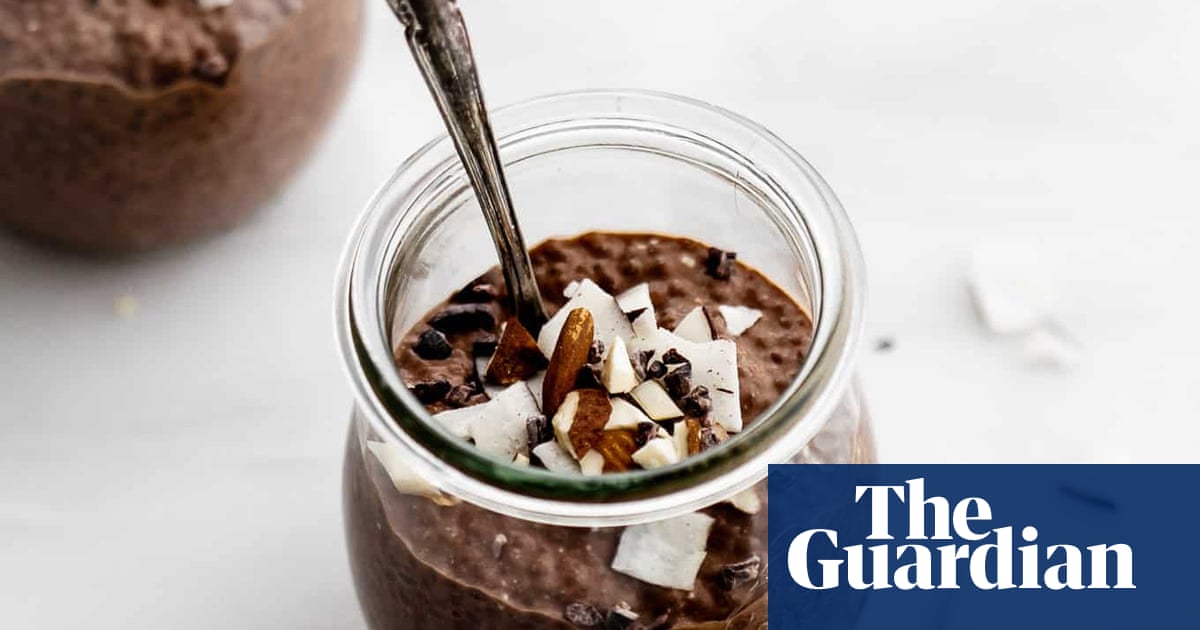It is billed as a “miracle” treatment that can reverse ageing and regenerate brain cells. And getting hooked up to IV drips containing NAD+ has surged in popularity, with record Google searches and celebrity fans such as Kendall Jenner and Joe Rogan.
Now NAD+ is being touted in the UK as a treatment for substance misuse. Infusions of NAD+, which is derived from vitamin B3, are being sold across the country as a “clinically proven” and “effective” way to quit drinking or get off drugs.
With drug deaths at a high and pressure on publicly funded treatment, it’s an appealing option. But there’s a problem, says Dr Michael Sagner, a King’s College clinical adviser and expert in NAD+. “It’s complete nonsense,” he says. “People going through withdrawals are often in physical pain. The last thing they need is NAD+.”
The Observer has found that unlicensed infusions containing NAD+ are being pushed as a treatment for substance use disorders in a likely breach of advertising and medicines rules, and despite a lack of proof that they work. The Medicines and Healthcare products Regulatory Agency (MHRA) said it had taken action against seven clinics offering NAD+ for medicinal purposes, requiring them to remove treatment claims.
The infusions – which some companies state can reduce withdrawal symptoms and “repair” damaged cells by boosting levels of NAD+ (the active form of nicotinamide adenine dinucleotide) – cost from £370 for a “basic protocol” to £2,800 for a five-session “recovery detox”. They are being sold by doctor-owned clinics regulated by the Care Quality Commission (CQC), as well as by wellness companies and beauticians.
Prof Harry Sumnall, an expert in substance use at Liverpool John Moores University, said: “It’s untested and unproven. We don’t know anything about its efficacy or long-term safety. There’s very little evidence supporting this approach.”
In one case, a businessman who is director of three CQC-regulated clinics advised a reporter posing as the sister of a man needing treatment for alcoholism to pay £5,000 for a programme involving ketamine infusions, which could also incorporate NAD+. “For an alcoholic there’s nothing like it … His life would completely change,” she was told.
Another company claims to have sold its NAD+ infusions to “hundreds” of patients struggling with substance misuse. A third promises results in five days, claiming its “groundbreaking NAD+ detox is perfect for the prevention, alleviation, and removal of the acute and chronic symptoms associated with alcohol and drug misuse”.

The cases cast light on a loosely regulated private addiction industry. NAD+ is not approved for use on the NHS, nor has it been licensed by the MHRA for medical purposes, meaning it cannot be advertised for the treatment of any disease.
Sagner said he was particularly concerned that NAD+ was being offered by doctors. “I’m concerned that people with medical degrees now just want to use it as an opportunity to make money. It’s not ethical and it’s not medical,” he said.
Hailed as a “miracle molecule”, NAD+, or nicotinamide adenine dinucleotide, is a coenzyme derived from vitamin B3. It is found in all cells and plays a key role in repairing DNA and producing energy.
Research shows NAD+ levels reduce over time and their depletion is thought to be linked to degenerative disorders and ageing. Studies suggest addiction – as well as stress, bad nutrition and smoking – can also affect NAD+ levels. According to advocates, boosting its levels can reverse damage and lead to a range of health benefits.
This hypothesis has driven a boom in people paying for NAD+ infusions. Stars including Hailey Bieber and Jennifer Aniston have reportedly used NAD+, while US podcaster Joe Rogan promoted it to his listeners.
In an episode of the Joe Rogan Experience last May, he described NAD+ infusions as an “intense feeling” that is “very uncomfortable for your stomach” and “makes you cramp up”, but said there were “a lot of benefits”. “There’s a benefit for your immune system. There’s a benefit cognitively. You feel much better,” Rogan said.
Experts in NAD+ question the health claims and say the reported benefits are more likely to be a placebo effect. Sagner, director of the European Society of Preventive Medicine and an unpaid adviser to supplement company Elysium Health, says it makes sense that boosting NAD+ levels might be beneficial, but that despite years of research, there is insufficient evidence to make conclusive claims. “The data are not 100% convincing. It’s 50/50,” he says.

The science on its use in addiction treatment is even less clear. While clinics promote anecdotal success stories, and some animal studies have suggested a role in NAD+ in craving and drug reward systems, it is far from being proven as a treatment for humans, says Sumnall.
Many of the claims that NAD+ is useful for withdrawal stem from research in the 1960s involving about 100 participants. They followed a protocol that involved NAD+ and were said to have seen benefits.Sumnall says: “This is a small uncontrolled study. In terms of clinical decision-making now, it would be considered a very weak study.”
In another uncontrolled study in the US in 2022, patients with substance use disorders were given infusions as part of a wider treatment programme. The study reported reduced craving and increased abstinence, which Sumnall calls “interesting”. “But that’s all we can say about it. It doesn’t reach the standards that we’d expect of therapies offered on the NHS or other treatment services,” he said.
Other research on NAD+ has been the subject of scrutiny. In November 2024, a study that claimed to show that NAD+ levels in lab rats fell as they got older was retracted by the journal PLOS One over concerns about its accuracy.
The journal’s editors said several of the microscope images included in the paper, which were purportedly from different experiments, looked similar to each other and in some cases appeared to have been flipped upside down. When it asked the researchers to supply the underlying data, they failed to do so. By the time the study was retracted it had been cited more than 700 times.
A spokesperson for the University of New South Wales in Sydney said the study’s lead author, who has authored multiple papers on NAD+, resigned from his post after the concerns were raised. They said an independent panel was looking into potential issues with several other research papers.
There are also questions over how NAD+ is administered. Sagner says there is little evidence that NAD+ infused into the bloodstream actually enters cells, where it is needed. He says oral supplements of a precursor – nicotinamide riboside (NR) or nicotinamide mononucleotide (NMN) – have been shown by clinical studies to be better absorbed. “That’s why it’s completely idiotic from a biochemistry point of view to inject yourself with NAD itself,” he added.
There are not thought to be acute side-effects from injecting NAD+ which, if it is not absorbed, is expelled in urine. But experts warn using it in place of a clinically proven detox programme for addiction can be dangerous. Withdrawing from alcohol and drugs can cause extreme side-effects, including hallucinations, hyperthermia, irregular heart rate and seizures.

Despite this, the Observer found NAD+ infusions being advertised as a “proven”, “safe” and “groundbreaking” treatment for addiction. In some cases, clinics seemed to present it as a standalone therapy for detox rather than an optional add-on.
One provider, NADclinic, describes NAD+ as a potential “gamechanger in addiction treatment” and offers a £2,800 “Alcohol Detox IV programme” as an “affordable alternative to rehab”. “At NADclinic, we do detox differently – and it works, with a 90% success rate,” its website says.
The clinic, which has premises in Marylebone, London, states on its site that all its services are “registered and regulated” by the CQC with options for detoxes “right here in London, UK”. After the clinic was contacted by the Observer, several webpages were edited to say the detoxes, which it describes as “virtually painless”, were only available in South Africa.
Another provider, Contral Clinics, described NAD+ infusions as a “highly effective” approach to “tackling alcohol addiction” and “a number of different drugs, including opiates and stimulants”.
The clinic, located off London’s Harley Street and owned by Joshua Berkowitz, a General Medical Council (GMC)-registered doctor, went on to claim that NAD+ had been “clinically proven to aid in detoxifying patients”, leading to “improved mental clarity, restoration of energy levels and elimination of cravings” through “intravenous therapy delivered direct to the bloodstream”. It invited people to “Talk to Addiction Counsellors” and “Get Immediate Confidential Help NOW!” by calling its helpline.
After Contral Clinics was contacted by the Observer, its website was deleted and a spokesperson for Berkowitz said it was no longer offering NAD+ infusions. He said the infusions had only ever been for “wellbeing” rather than addiction treatment as part of a protocol known as the Sinclair method, which involves taking a drug called naltrexone to block the pleasurable effects of drinking, adding that marketing suggesting otherwise was “not as clear as [it] could have been”.

Another provider, Rehab Clinics Group, promoted IV NAD+ therapy as a “vital asset in the fight against addiction” for some, helping them achieve a “complete and long-lasting recovery”. “Only with a combination of NAD+ and regular therapy and support can someone stay on the path of recovery,” it said. The group lists three CQC-regulated clinics on its website, including Asana Lodge in Northamptonshire, which is described as “the UK’s first residential centre based purely on scientific, evidence-based treatments”.
after newsletter promotion
In a call to Rehab Clinics Group’s helpline in January, a reporter posing as a woman seeking help for her brother was advised that Asana Lodge – which has previously promoted NAD+ on social media – could be the best fit.
The call handler said the centre had previously offered NAD+ to patients as part of a rehabilitation programme but was no longer doing so at the centre. Instead, she said, NAD+ injections were available for home use, adding that she used them “every day”.
Another provider, BIOnad, in Camden, promoted NAD+ infusions as a “safe, scientifically-verified treatment for alcohol addiction”, while the website for 5 Day Addiction Detox advertises a “98% successful completion” rate for its NAD+ detox, which it says can be offered at “discreet residential rehab centres” or “the comfort of your own home”.
NAD+ is also being sold in injection form by companies like NAD+ At Home, which charges £350 for 20 doses and primarily sells NAD+ as a wellness product. It has also promoted NAD+ for alcoholism. “NAD+ At Home has the potential to counteract and rectify the adverse effects that alcohol inflicts upon our bodies,” it wrote in a Facebook post last year tagged #stoptober, #alcoholism, #addiction, #recovery

Some promotions are likely to be in breach of advertising rules, under which claims about the health benefits of intravenous nutritional therapy, such as NAD+, “need to be backed by robust evidence”, and medical claims cannot be made unless “that specific product has been licensed as a medicine for that purpose”.
They may also be unlawful. A spokesperson for the MHRA said: “Anyone who is making medicinal claims about NAD+, including using NAD+ to help with addiction, is in breach of our regulations, [which] can lead to a criminal offence. Our priority is the safety of the public.”
Beyond marketing, experts are concerned about potential risks. While supplementing NAD+ is unlikely to have serious side-effects, little is known about long-term safety. Injections and IV infusions carry a risk of infection, and many clinics fail to test existing NAD+ levels in a patient before and after treatment.
John Gillen, who calls himself the “European pioneer” of NAD+ and helps run three clinics registered with the CQC, said he had been involved in “hundreds” of NAD+ infusions. Asked whether levels were tested, Gillen, who has no medical qualifications, said no. “I don’t believe there’s anything worth looking at … You would look at the criteria of an alcoholic and there’s a physical appearance of NAD [levels] in that person,” he said.
Prof Sagner said he had challenged several other companies offering NAD+ and found they were not testing. “Some didn’t even know you could test for NAD levels, which is a joke. A blood test takes two minutes and it’d allow you to make an informed professional decision instead of just injecting people with stuff that might have side effects or do nothing,” he said.
Dr David Bremner, medical director for drug and alcohol charity Turning Point, said he feared vulnerable people were being misled. He said it was important to be supportive of “future innovative treatments”, but that anything offered to people suffering from addiction needed “a strong basis of fact”. He added: “I would be very concerned if a patient told me they were spending money on this, especially if that was to the exclusion of the tried and tested remedies and support.”
Last week, some of the companies offering NAD+ stood by their claims about the benefits of their infusions.
Iain De Havilland, CEO of NADclinic, said it was a “brilliant alcohol detox”. “The results we have seen have been amazing,” he said. He denied that NADclinic had promoted NAD+ as a “treatment” for addiction, saying it had instead called it a “therapy”. “In terms of getting an alcoholic clean, it absolutely works as a therapy,” he said.
De Havilland also said while the clinic had no licensing or approvals from the MHRA to market NAD+ for addiction, it had been licensed for use in South Africa, and said the last alcohol detox it did in the UK was in 2023. He said webpages referring to NAD+ infusions in the UK might be from “non-updated” parts of the website. He also rejected claims by other experts that NAD+ itself cannot cross the cellular barrier as an “engineered narrative by people wanting to sell precursors”.
Gillen, who is a director of Rehab Clinics Group and has links to 5 Day Addiction Detox, BIOnad and NAD+ At Home, said NAD+ was a “useful nutritional supplement” but should not be used as a standalone therapy.
He blamed website content about NAD+ on “marketing people” and said they needed updating. He said he had only offered NAD+ with involvement from a doctor, as part of a full detox in line with Nice guidelines, and that he was concerned NAD+ sales were becoming a “wild west”.
Berkowitz, of Contral Clinics, said: “Far from exploiting vulnerable patients, I believe NAD+ has the capacity to support them by promoting a quicker recovery.”
He said he had “seen many patients gain such benefits from having NAD+ IV therapy” when it was offered as part of a full detoxification process. He added that he had been sent a letter by the MHRA in 2017 saying it had “no objection” to him importing NAD+.
But the MHRA said last week that permission to import did not mean permission to promote NAD+ as a treatment for use in addiction or any medical condition, adding that any letters from 2017 would now be “long expired”.

The CQC, which regulates addiction treatment services in England, said it visited clinics to ensure they followed best practice. It did not comment on NAD+ but said clinics deviating from guidelines would need to show they were offering “safe and effective care”.
The health regulator in Scotland previously rebuked a private NAD+ clinic for recommending IV infusions to people undergoing alcohol detoxification without making clear they were an add-on.
NHS England said it did not use NAD+, and Nice said it had not assessed it for addiction but that if there was “high quality published evidence” of efficacy, it would consider this. The GMC said doctors were required to “provide effective treatments based on the best available evidence” and that if there were concerns that standards were not being met, it could investigate.
Dominic McCann, the director of Castle Craig, a private rehab centre, who helped found the Ethical Marketing Campaign for Addiction Treatment, said desperate people were being targeted with misinformation “laid on thick”.
He shared emails showing that his own clinic has been approached by salespeople encouraging them to offer their patients NAD+, but he refused because the evidence was weak. “Patients might spend their life savings on addiction treatment, so efficacy and outcome are deeply serious,” McCann said. “There are plenty of other options with a strong evidence base.”

.png) 2 months ago
16
2 months ago
16













































